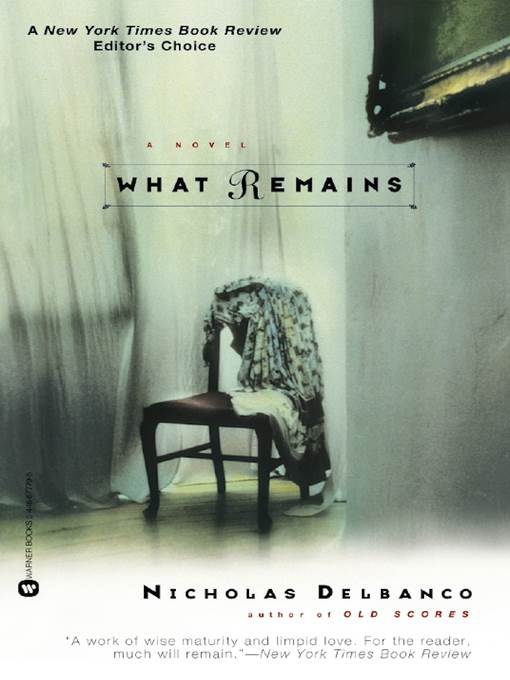
What Remains
کتاب های مرتبط
- اطلاعات
- نقد و بررسی
- دیدگاه کاربران
نقد و بررسی

October 30, 2000
"There is the landscape you are given and the landscape that you choose." So reflects 55-year-old Karl 16 years after emigrating from England to America in 1948 with his wife, Julia, and two young sons. Alternating narrative perspectives, the prolific Delbanco (Old Scores) brings together the voices of three generations of German Jews, weaving a history of a family's wanderingDtheir search for a hitching post for "the heart's geography." Karl and his elder brother, Gustave, left Hamburg for London when Hitler rose to power; Julia, Karl's wife, is from a wealthy background in Berlin, and had to cut short her studies when Jews were no longer permitted at university. At the war's end, Gustave and his family decide to stay in England, but Julia urges her young family to the leafy suburbs of Larchmont, N.Y., where she envisions more opportunities for her sons, Jacob and Benjamin. The boys recall their childhood in England, the bomb shelters and air raids interspersed in their memories with the trappings of childhood: a mother's powder puff, strawberry jam, milk chocolate obtained with a ration book. Coming of age between two countries and haunted by a third they do not know, the children are given pieces of the German language as their heritage. Here lies the deeper question of identity that haunts these reflective, lyrical narratives. Where is tradition if expatriation has been forced? What is at the heart of family when the threads of history fly loose? Elegiac and subtle, the book feels shadowed by memoir yet it is never obvious or heavy-handed. In these unhurried family tales, the theme of "who we are" will resonate for discriminating readers, especially those who appreciated Delbanco's recent The Lost Suitcase. Booksellers will enjoy recommending this quietly trenchant novel, which features a haunting, green-tinted jacket illustration that's going to lure browsers. 9-city author tour.

October 1, 2000
A German Jewish family's trip to visit an elderly uncle in London sparks a series of reflections, offered by various family members, on the process of adapting to new environments. Most of the tale is set in World War II London, where the family has fled to escape Hitler. While safe themselves and living in relative comfort, they are nonetheless uprooted souls trying to adjust to new realities, both in England and later in suburban New York. Throughout, memories of the past linger, as does the knowledge of how lucky they are. The horrors of the Holocaust are not directly addressed in this warm, quiet, and engaging tale, but a sense of loss permeates the text. As Delbanco shows, we can move on, we can adapt and be successful, but we can never fully recapture our past, much as we might try. The address is always just a little off, as our main narrator discovers quite literally on a visit to the street where he grew up. No sex, no violence, just a moving story that can be recommended for most public libraries. [Previewed in Prepub Alert, LJ 7/00.]--David W. Henderson, Eckerd Coll. Lib., St. Petersburg, FL
Copyright 2000 Library Journal, LLC Used with permission.

November 1, 2000
Delbanco offers a richly textured portrait of a Jewish family with artistic and intellectual inclinations. The story encompasses several generations: Elsa, the proud and slightly eccentric matriarch; her sons Karl, who takes over the family business when his father dies, and Gustave, who is more interested in art; Karl's wife, Julia; and their little son, Jacob. Forced to leave their comfortable life in Hamburg when Hitler comes to power, they settle first in London. Not long after the war, Karl moves his family again, this time to America, and he sets up a branch of the family business. This is not a novel about plot, but rather a series of vignettes and impressions, unfolding through multiple points of view, from that of the very young to the very old. Most of the impressions are clustered around the years 1944 through 1946, but they weave back and forth through time, the novel becoming a meditation on the themes of fate, memory, exile, change, age, what sustains, and what fulfills.(Reprinted with permission of Booklist, copyright 2000, American Library Association.)

























دیدگاه کاربران